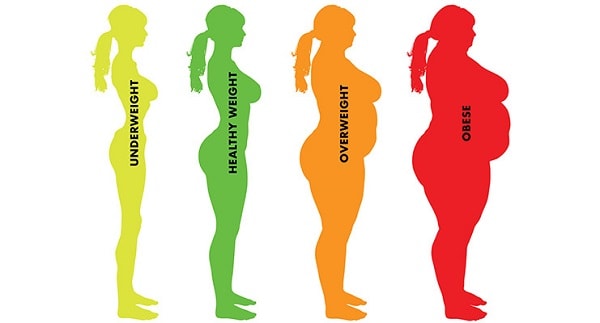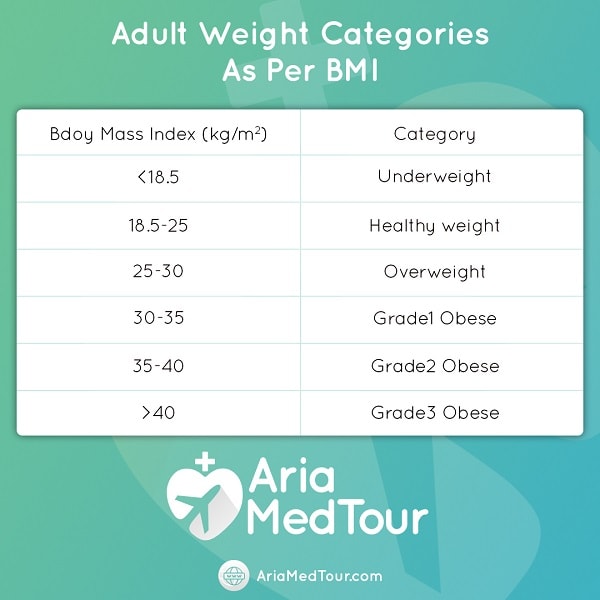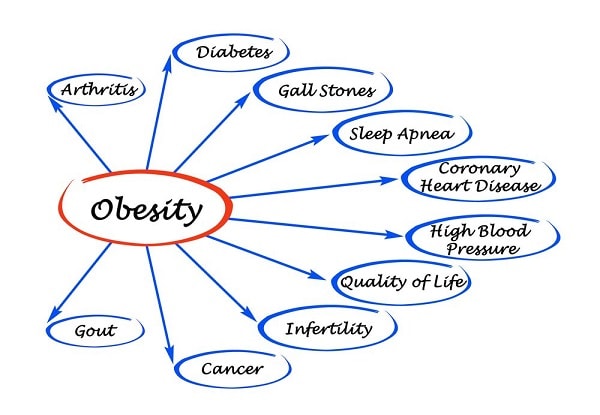The urbanization of the 21st century and the lifestyle changes have led to a significant rise in the number of people suffering from obesity. The advent of machines and gadgets that have come to make human lives easier, has also entailed its own downsides. Today, people in many societies have lower physical activity compared to their ancestors.

Obesity has become an epidemic in many countries, especially more developed ones. In the United States, for instance, 1 in every 3 adult persons are suffering from obesity. If we add people who have only some degree of overweight, the figure would reach to almost 70 percent. Although having a few pounds of excess fat is not a big thing to worry about, putting on a large amount of fat becomes something more than a simple irritation: it becomes a disease. If you are concerned about your excess weight and are looking for the best option to treat your condition, keep reading this article.
Who is obese?
Obesity is a condition when a person’s weight is at least 20 percent higher than the normal weight. In other words, when a person has accumulated so much body fat that it might negatively affect his/her health.

What is the ideal weight?
An ideal weight is a weight a person feels comfortable and healthy having it: a weight that does not create health issues for people. Technically speaking, an ideal weight is when a person has a BMI of 18.5 to 25. If a person has a BMI of 25-30 he/she is considered overweight and if the BMI is over 30, he/she is obese.

An Ideal weight is a weight a person with a BMI of 18.5 to 25 have
What is BMI?
BMI or Body Mass Index is an indicator that tells you if you have normal weight or you are overweight (or underweight) and to what degree. It uses your weight and height in relation to each other for this purpose.
How to calculate my BMI?
It’s so simple. First divide your weight in kilograms by your height in meters, then divide the answer by your height again. For example, if your weight is 98 kilograms and your height is 168 centimeters, your BMI is calculated as follows: 98/1.68=58.33 » 58.33/1.68=34.72. You can also divide the weigh (kg) by the height (m) squared. Th BMI calculation formula is illustrated below.


Adult weight categories: People with BMI 30 or more are considered obese and must get medical treatment.
What happens if my obesity is left untreated?
Obesity significantly increases the risk of various diseases such as heart diseases, diabetes, high blood pressure, knee arthritis, certain types of cancers (breast, cervical, ovarian, bile duct, colorectal, prostate), fertility disorders, etc.
A study has suggested that obese people are hospitalized more often than people with normal weight. It also has shown that they are three times more likely to have a heart attack or a stroke or develop diabetes; other studies suggest much higher likelihood: 6-10 times! Moreover, people with severe obesity are 14 times more likely to get knee osteoarthritis than people who are in the normalweight range.

Obesity is linked to a wide range of diseases
To show the significance of weight loss in obese people suffering from diabetes, for instance, a study has shown that in those who had shed 10 kg of their excess weight, the death risk had decreased by 30-40 percent.
People with BMI of 30 or more suffer from obesity and should be treated as soon as possible to prevent health problems.
What causes obesity?
Obesity results from a lack of balance in calorie intake and calorie consumption in the body. Therefore, various factors contribute to this imbalance and hence obesity, either directly or indirectly. The most common factors are dietary habits, changes in lifestyles, physical inactivity, high consumption of fast food and sweetened beverages, and genetics.

Obesity is caused by different factors, including inactivity and high consumption of fast food and sweetened beverages
How to treat obesity?
People fall into 3 main categories in terms of their weight. For each group, different weight loss strategies or methods are recommended:
First group (people with BMI of 18.5 to 25): If you belong to this category, you are healthy and do not need any weight loss treatment. Just keep your weight the way it is by maintaining a balanced diet and doing regular exercises.
Second group (people with BMI of 25 to 30): If you fall into this group, you are overweight, but not obese. You will be able to reach your ideal weight by changing your eating habits and increasing your physical activity, or sometimes by taking weight loss pills.
Third group (people with BMI of over 30): If your BMI is 30 or more, then you are obese and need to visit a doctor for treatment. You can be treated by different weight loss surgeries (gastric balloon, gastric band, gastric plication, gastric sleeve, (mini) gastric bypass) each of which is recommended for patients with different BMI ranges.
Obese people (BMI over 30) are further divided into 3 categories: Grade I (BMI between 30 to 35), Grade II (BMI between 35 to 40), and Grade III (BMI over 40).
What is the best weight loss surgery for me?
Based on the degree of your obesity, weight loss doctors recommend the following surgeries:
BMI between 30 to 35 (20 to 35 kg excess weight)
Men: Gastric balloon (Everything you need to know about gastric balloon)
Women: Gastric balloon, gastric band, gastric plication (Everything you need to know about gastric band), (Everything you need to know about gastric plication)
***
BMI between 35 to 40 (35 to 50 kg excess weight)
Men: Gastric sleeve (Everything you need to know about gastric sleeve)
Women: Gastric sleeve
***
BMI between 40 to 45 (50 to 65 kg excess weight)
Men: Gastric sleeve
Women: Gastric sleeve, gastric bypass (Everything you need to know about gastric bypass and mini gastric bypass)
***
BMI between 45 to 50 (65 to 80 kg excess weight)
Men: Gastric sleeve
Women: Gastric bypass
***
BMI over 50 (over 80 kg excess weight)
Men: Gastric bypass, mini gastric bypass
Women: Mini gastric bypass

















